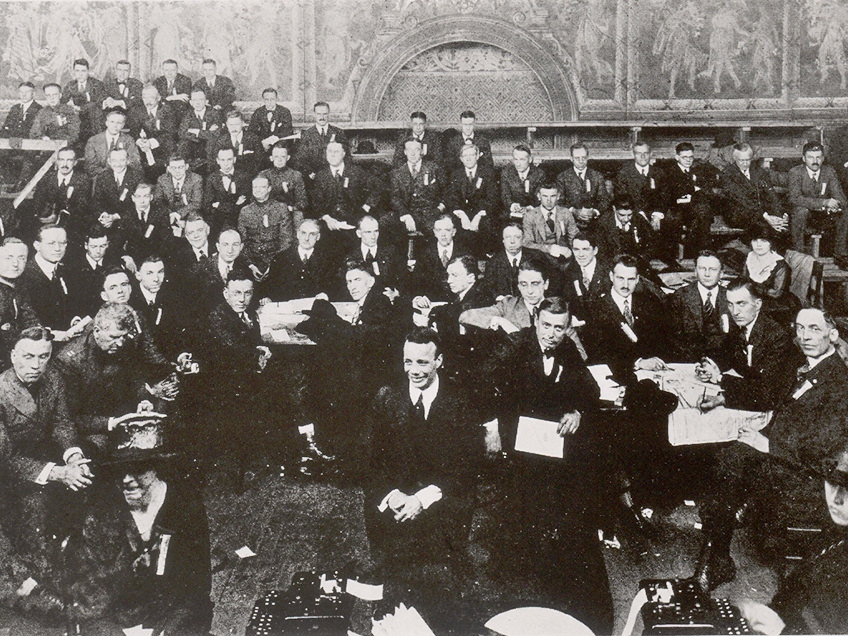
The American Legion’s constitution is approved at the St. Louis Caucus after Theodore Roosevelt, Jr., rejects chants of “We want Teddy!” to serve as first national leader of the organization. Roosevelt, Jr., with plans to eventually run for elected office, does not want The American Legion to be politicized in any way. Former Dallas Mayor Henry D. Lindsley is instead named chairman of the St. Louis Caucus, conducted at the Shubert Theater. There, plans are made for the election of a national commander at the first national convention in Minneapolis in November. Before declining nomination to permanently lead (but serving as temporary chairman of the St. Louis Caucus), Roosevelt calls the gathering to order using a gavel made from the steamship Roosevelt’s rudder that carried Adm. Robert Edwin Peary during his explorations of the North Pole.
“I want the country at large to get the correct impression of this meeting here. We are gathered together for a very high purpose. I want every American through the length and breadth of this land to realize that there is not a man in this caucus who is seeking anything for himself, personally, but that he is simply working for the good of the entire situation … Now gentlemen, it is my absolute determination to withdraw myself.”
Theodore Roosevelt, Jr., temporary chairman of the St. Louis Caucus of The American Legion, May 8, 1919
By the end of the St. Louis Caucus, drafts of The American Legion preamble and constitution are approved, temporary officers chosen, a national convention site is selected and the name of the organization becomes permanent. Among the participants are approximately 25 African-American veterans, including Earl B. Dickerson, who would later become a prominent Chicago lawyer and civil rights leader.
“Our first duty is, beyond the shadow of a doubt, to get this boy on his legs, and once we get it on its legs, it will be like the mighty Niagara Falls. There is not anything in the world can dam it up. It will be a power that shall be known, and with influence all over America, and for good all over the world. Let’s be quiet and let’s be sensible today until we get this boy on his legs. He’s just a recruit, a raw recruit, and he has to be trained and we are going to do that thing now.”
Chaplain John Inzer, Alabama, speaking about the formation of The American Legion at the St. Louis Caucus, May 10, 1919
